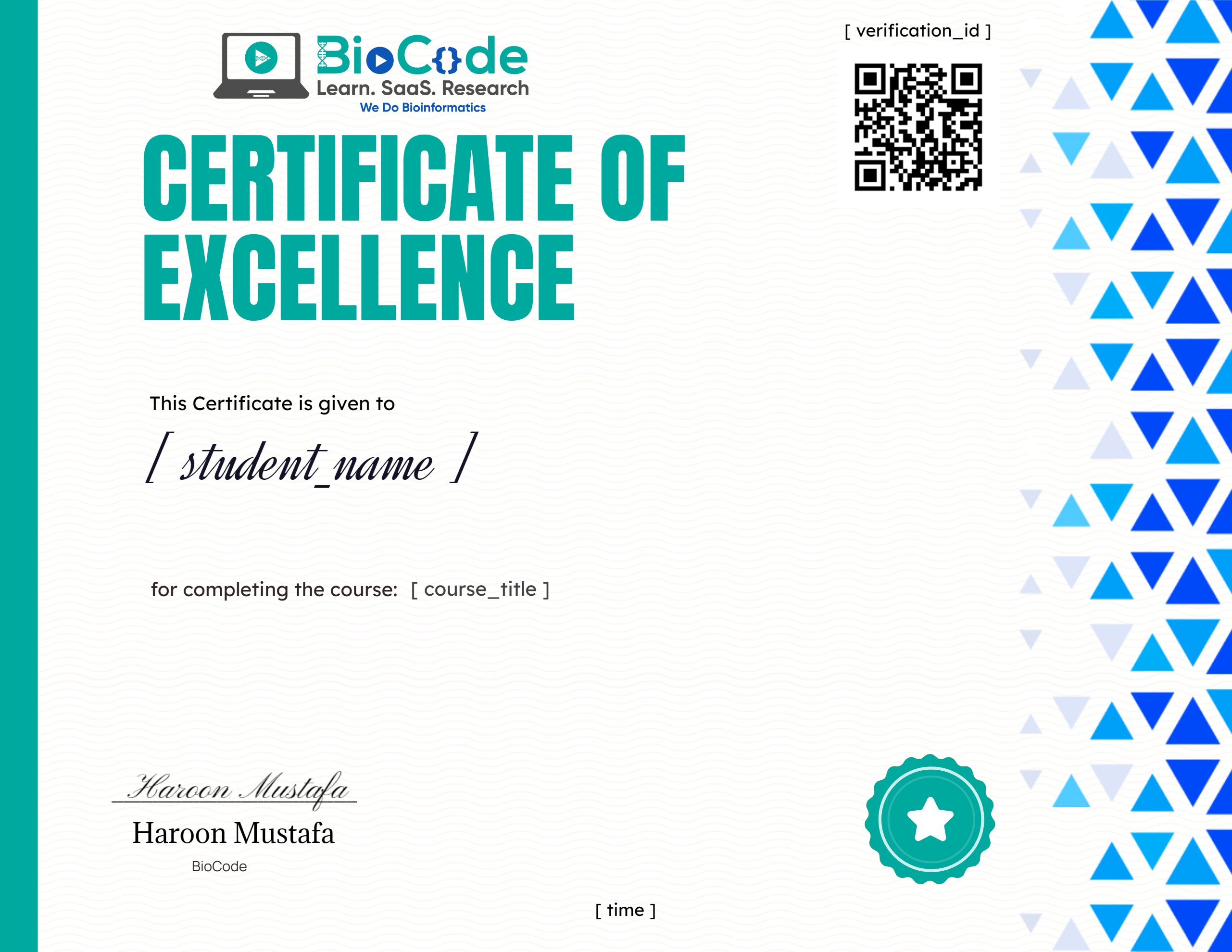Fundamental Bioinformatician Course in Python
About Course
Fundamental Bioinformatician Course in Python Allows You To Develop The Basic Bioinformatician & Programming Skills in Python
Being a Bioinformatician means you’ve to learn how to retrieve and analyze biological data in the most efficient way, to learn how to align & analyze biological sequences to predict the evolutionary histories between them, to find out the conserved patterns, to learn how to predict coding regions or genes from a raw nucleotide sequence, and much more.
To efficiently deal with huge genomic and proteomic data often requires writing short scripts or patches of code to computationally analyze the biological datasets, rather than comparing and analyzing such huge datasets manually. Hence, the major part of Bioinformatics involves computationally analyzing biological datasets.
The simple syntax and high-level data structures of Python, make it easier for nonprofessional programmers such as computational biologists to develop programming skills, enabling them to interact with data programmatically and eventually develop code on their own.
In this course you’ll learn the very basics of most commonly utilized biological databases, how to find conserved and variable regions within sequence alignments & analysis and do evolutionary & phylogenetic analysis. You’ll also be able to learn various concepts related to how to write your first script, Python data structures such as lists, strings, dictionaries and more. Along with, how to read/write Bioinformatics files, work with loops and how to control the flow of your program and script.
Joining and learning from the Fundamental Bioinformatician Course in Python can enhance your biological career by learning through various useful & informative pre-recorded lectures on Bioinformatics tools, databases, servers and biological programming languages.

Course Content
Bioinformatics Databases
-
Introduction to National Center of Biotechnology Information (NCBI)
18:02 -
Sequence Analysis
17:59 -
Sequence Retrieval from NCBI
16:17 -
PubMed Central & ENTREZ
11:07 -
GenBank: Nucleotide Database on NCBI
06:50 -
FASTA vs GenBank
18:26 -
Gene Database: A Comprehensive Gene Database
30:21 -
NCBI Genomes & NCBI Assembly: Retrieval of Genomes
36:14 -
RefSeq Database: Retrieval of Single Reference Sequences
11:16 -
BLAST Database Searching
25:37 -
Introduction to UCSC Genome Browser & SARS-CoV2 Viral Genome
13:40 -
Retrieve an Entire Genome & Retrieval of SARSCoV-2 Viral Genome
09:41 -
Retrieval of Genomic Data & Annotation of SARSCoV-2 Viral Genome
05:30 -
Introduction to ENSEMBL
07:50 -
Retrieval of a Gene-Protein-Chromosomal Region
18:02 -
Introduction to Phytozome
09:39 -
Interpret Plant Genome Records
09:07 -
Download an Entire Plant Genome & Proteome
26:41
Bioinformatics File Formats
Protein Databases & Analysis
Sequence Alignment & Analysis
Phylogenetic Analysis
Secondary Structure Prediction
Python
Exercise
Earn a certificate
Add this certificate to your resume to demonstrate your skills & increase your chances of getting noticed.


